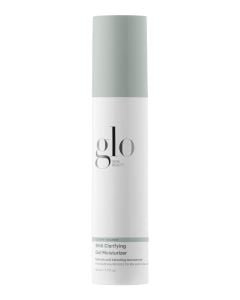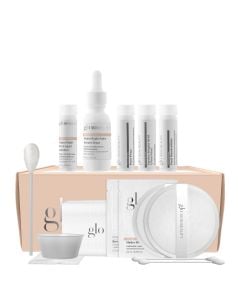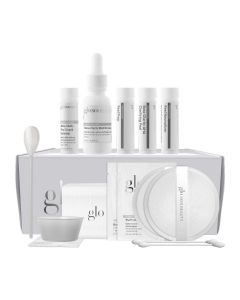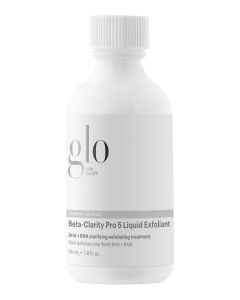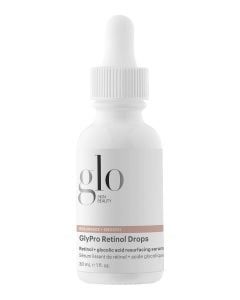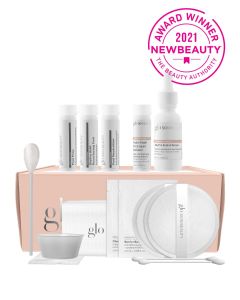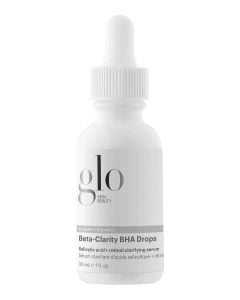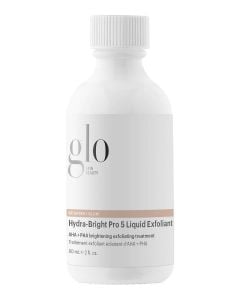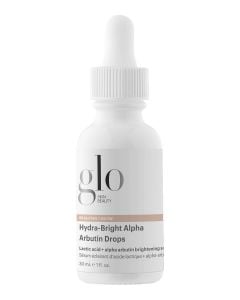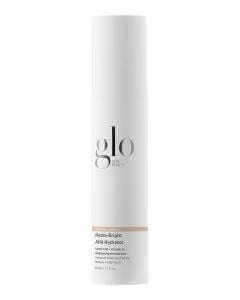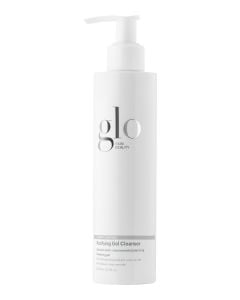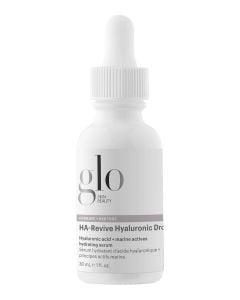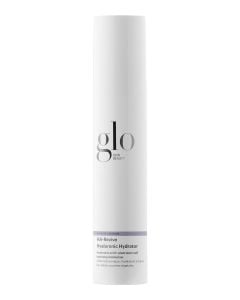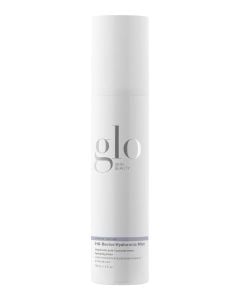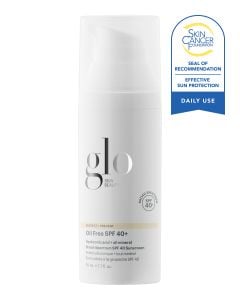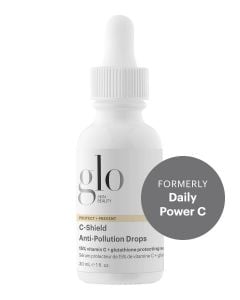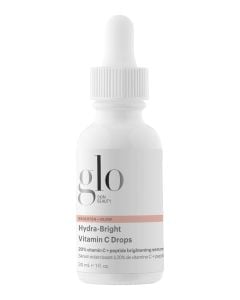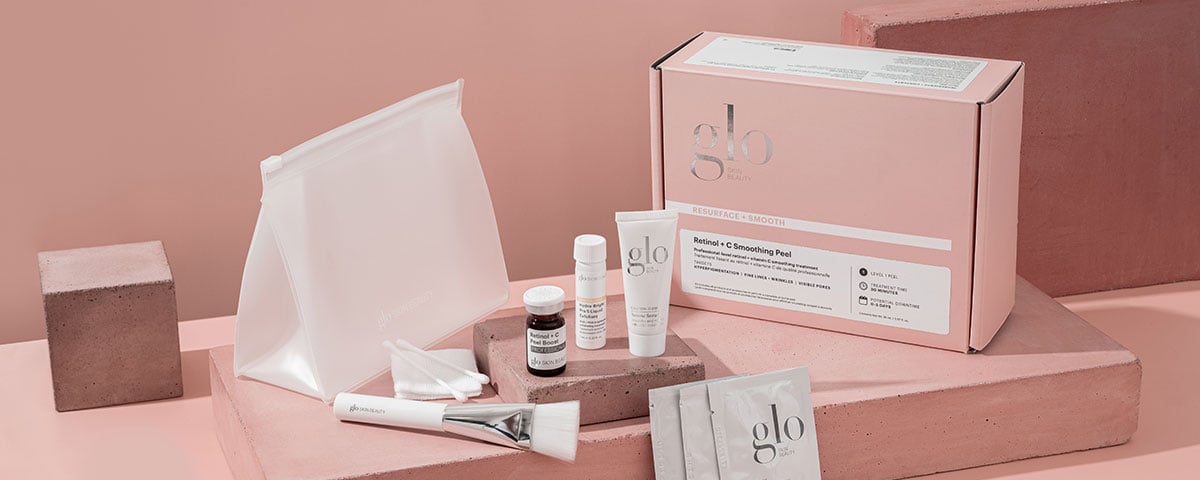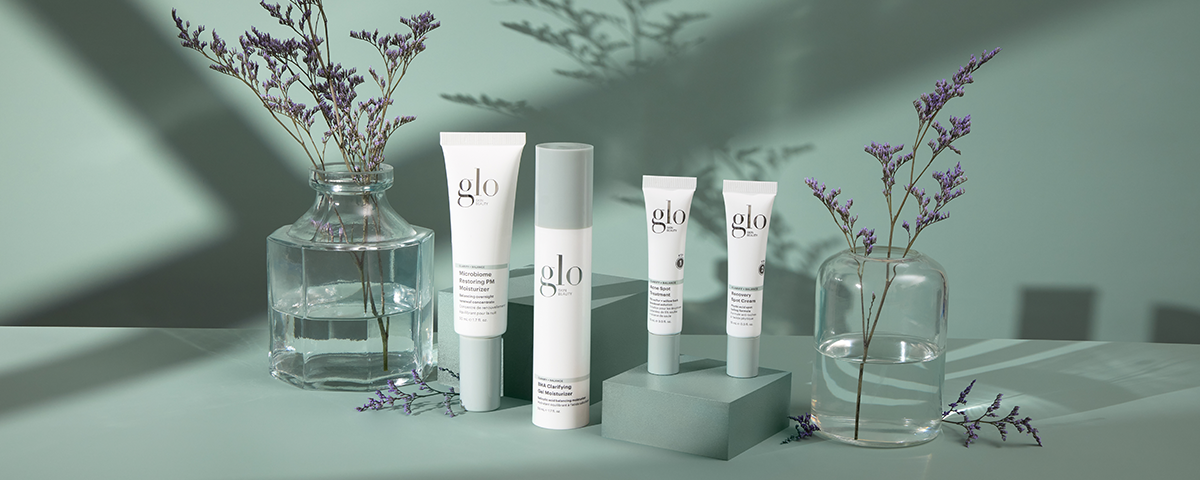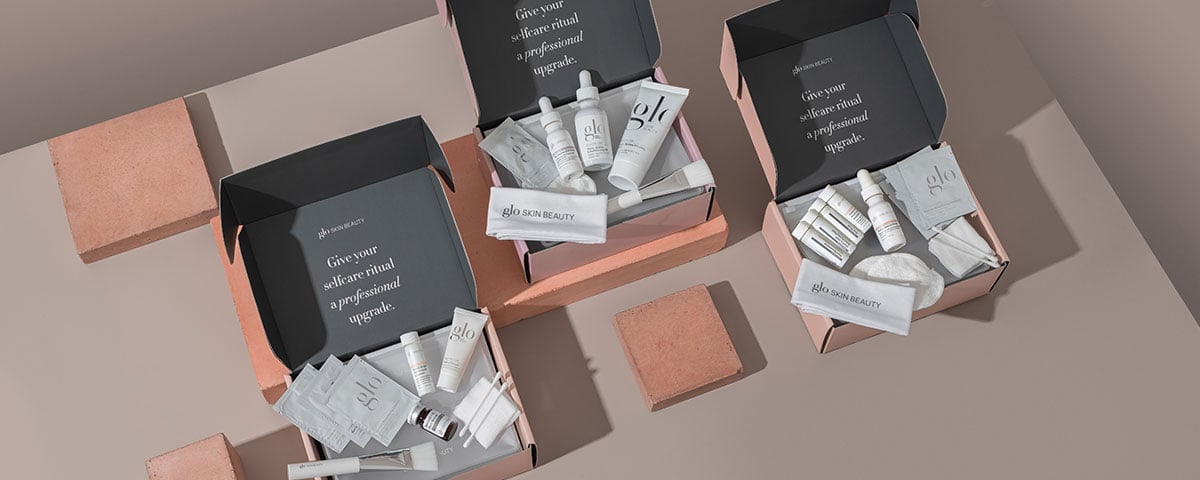- Featured
- Ingredient Spotlight
- Best Sellers
- Skincare
- Makeup
- Professional
- Blog
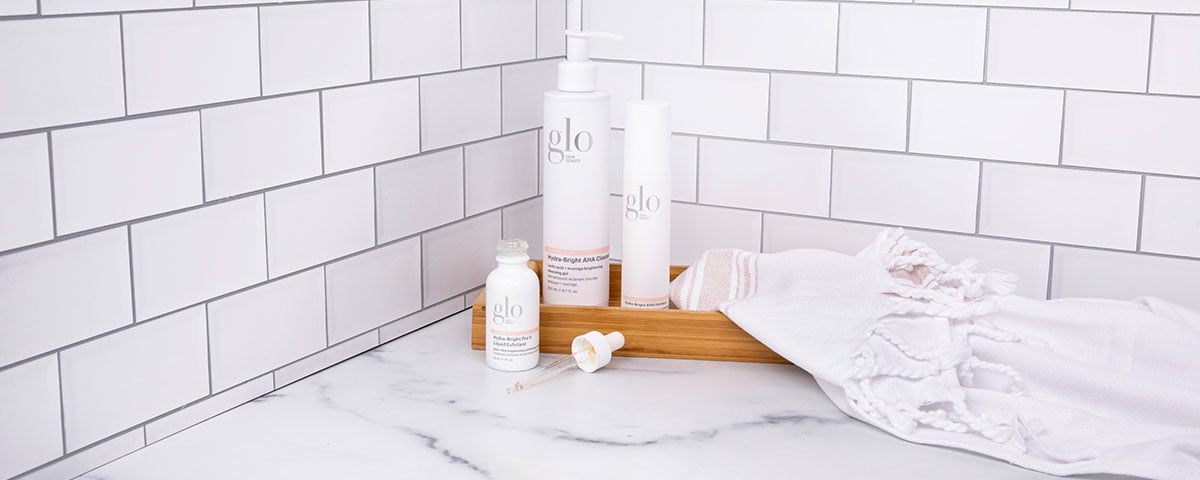
A Complete Guide To Chemical Exfoliation For Acne
Did you know that chemical exfoliation for acne can be a great step in clearing skin and promoting clarity? Now, you’ve likely heard a lot of talk about acids lately, but maybe you're still not sure how they can help your skin—and we're guessing they might sound scary if your skin is reactive or stressed out. We get it, without knowing the benefits of acids in skincare, it can be hard to think about putting them anywhere near your face.
We breakdown your breakouts in this guide to chemical exfoliation for acne and dive into the wonderful world of AHAs, BHAs, and other skin-loving acids and skin exfoliators.
What Does Chemical Exfoliation Actually Mean?
To put it simply, chemical exfoliation uses acne-fighting acids to help clean out pores and stimulate exfoliation. This is essential for anyone with acne, but also aging, texture, and hyperpigmentation concerns. Chemical exfoliation helps products reach deeper layers of the skin, whereas physical exfoliation (manual scrubs) only address surface layer issues. And, while it might not seem like it, chemical exfoliation is actually much better than physical exfoliation for acne-prone and sensitive skin because it causes less irritation to skin's surface.
It’s important to note, using acids and chemical exfoliation causes an increase in sun sensitivity. If you are going to include this step in your skincare regimen, you MUST also use a daily SPF.
When looking at our lineup of acids that help treat and prevent acne, there are four categories that help in every stage of acne:
- Category 1: Acids to help resolve current acne and prevent new acne
- Category 2: Acids to help treat post-acne side effects
- Category 3: Acids for overall skin health
- Category 4: Acids in Professional Treatments
Chemical Exfoliation For Acne
There are two major types of acids that help treat and prevent acne, alpha hydroxy acids (AHAs) and beta hydroxy acids (BHAs).
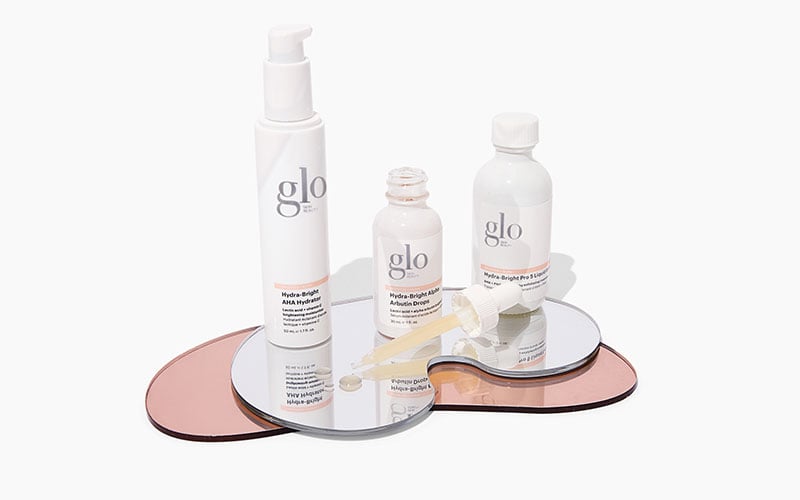
AHAs For Acne
AHAs are best used to stimulate exfoliation and improve skin’s texture and pigmentation. They're commonly found in smoothing and brightening products because of their ability to penetrate the uppermost layers of the skin and break up any dead skin cells that reveal clearer and more youthful-looking skin.
Glycolic Acid
Considered the gold standard of AHAs, glycolic acid has the smallest molecular size of all AHAs, meaning it can penetrate deeper layers to reveal a smoother complexion.
You'll find glycolic acid in: GlyPro AHA Resurfacing Cleanser, Glycolic Resurfacing Cream, GlyPro Retinol Drops, Hydra-Bright Alpha Arbutin Drops, Beta-Clarity BHA Drops, and our at-home peel kit GlyPro Resurfacing Peel.
Lactic Acid
Known as a gentler AHA with a larger molecular size than glycolic acid, lactic acid has the same results as glycolic, but at a slower rate. This is ideal for anyone with sensitive or compromised skin. And, as a note, Glo uses only vegan lactic acid.
You'll find lactic acid in: Hydra-Bright AHA Cleanser, Hydra-Bright Alpha Arbutin Drops, Hydra-Bright AHA Hydrator, Phyto-Calm Aloe Drops, and Hydra-Bright AHA Glow Peel.
BHAs For Acne
BHAs are different than AHAs because they are oil-loving. This is especially important for the majority of acne sufferers as excess oil and acne go hand-in-hand.
Salicylic Acid
Salicylic acid is the primary BHA used, and it's one of the absolute best acne-fighting ingredients available because of its smaller molecular size. This means it can penetrate through oil all the way down into pores, where acne symptoms begin.
You'll find salicylic acid in: BHA Clarifying Gel Moisturizer, Hydra-Bright Polishing Cleanser, Beta-Clarity Clear Skin Cleanser, Purifying Gel Cleanser, Clear Complexion Pads, Beta-Clarity BHA Drops, Beta-Clarity AHA Clarifying Peel, and Beta-Clarity Pro 5 Liquid Exfoliant.
Chemical Exfoliation For Post-Acne
Even after active acne clears, post-inflammatory hyperpigmentation (PIH) or the discolored shadow marks still remain.
Azelaic Acid
Azelaic acid helps treat hyperpigmentation—whether caused by acne or not, by stopping the enzyme that increases excess melanin production. Azelaic acid also fights the growth of bacteria in the follicle, which as we know, can lead to clogged pores. Work azelaic acid into your daily skincare ritual with our Hydra-Bright Alpha Arbutin Drops which also feature alpha arbutin for an extra boost of brightening.
Gallic Acid
Similar to azelaic acid, gallic acid helps brighten the skin by inhibiting melanin-producing enzymes. Additionally, this acid also offers antioxidant, anti-inflammatory, and antibacterial benefits, promoting an overall brighter and smoother complexion. Add it to your evening ritual via a serum like GlyPro Retinol Drops.
Acids For Skin Health
Now that we’ve covered the true acne-fighting acids, let’s take a look at some other important acids that don’t exfoliate but still play a key role in overall skin health.
Hyaluronic Acid
Hyaluronic acid is well-known and popular in skincare for its ability to attract and maintain up to 1000 times its weight in water. No matter your skin type, everyone should use hyaluronic acid because it prevents transepidermal water loss and provides protection from free radical damage caused by environmental aggressors. It also is gentle enough to be used for even the most sensitive of skin. Try it in mixed molecule size so it can offer both surface and deeper level hydration via our quenching serum HA-Revive Hyaluronic Drops. You can also add it to your moisturizer such as the Oil Free Emulsion—great for hydrating oily skin without clogging pores, or a richer moisturizer for dry complexions like Phyto-Active Face Cream. And, if you have aging concerns partner your hyaluronic acid with vegan epidermal growth factor for a reparative and line-smoothing boost with our Bio-Renew EGF Drops.
Ascorbic Acid
A key ingredient in vitamin C serums, ascorbic acid protects skin from UV radiation damage (you'll still need SPF though), improves skin elasticity, stimulates collagen synthesis—reducing the appearance of wrinkles, heals wounds, and suppresses skin pigmentation. Try it in go-to daily vitamin C serum C-Shield Anti-Pollution Drops at 15% vitamin C concentration, or go for 20% in Hydra-Bright Vitamin C Drops. Both vitamin C serums pair perfectly with a hyaluronic acid serum too for that daily hydrating, brightening, and skin-shielding boost.
Professional Use Acids
Many acids are only available up to certain concentration levels for consumer purchase. If acne doesn't respond to over the counter products, a higher concentration may be necessary and must be administered by a licensed aesthetician or dermatologist. In addition to the top acids previously discussed, Glo offers several professional chemical exfoliation peels that contain additional acids that assist in the exfoliation and acne treatment process.
Malic Acid
Malic acid is another AHA, and has a larger molecule than glycolic and lactic but can also exfoliate on its own. It's most commonly used alongside other AHAs for multilevel exfoliation. For home use, find it in our Hydra-Bright Pro 5 Liquid Exfoliant along with 3 other AHAs and a PHA (poly hydroxy acid), for a pro-level smoothing, toning, and brightening treatment that's gentle enough for all skin types to tolerate.
Mandelic Acid
Mandelic acid is the largest AHA molecule, making it ideal for sensitive skin. Because of its molecular structure, it absorbs much slower and causes less disruption to the skin. Mandelic acid is also ideal for deeply pigmented skin because of its non-irritating nature. Additionally, it contains antibacterial properties that help control oil and prep skin for professional extractions. For home use, find it in our Hydra-Bright Pro 5 Liquid Exfoliant, Beta-Clarity Pro 5 Liquid Exfoliant, plus our at-home Beta-Clarity AHA Clarifying Peel, or our professional TCA Clinical Reveal Peel.
Beyond chemical exfoliation for acne, our acne guide has everything you need to know about how to treat acne and prevent breakouts.
December 29, 2021

